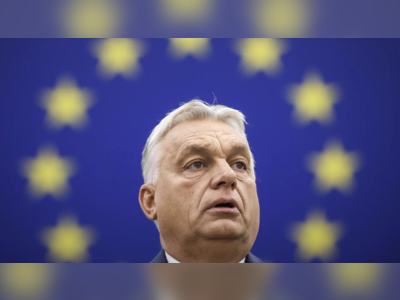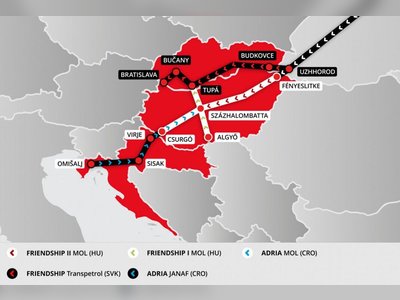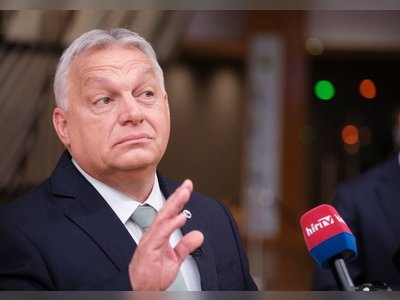Hungarian Government Expands Rural Development Program Amid Controversies
Government officials address expansion of initiatives and respond to public demonstrations and ongoing scandals.
In a press briefing on March 27, 2025, Gergely Gulyás, the chief of the Prime Minister's Office, announced enhancements to the Hungarian Village Program, which will now include the installation of ATMs in every settlement, a church renovation program, and support for small shops and pubs.
This initiative aims to foster local communities through economic development.
During the same briefing, Gulyás addressed recent comments made by Prime Minister Viktor Orbán, specifically regarding his remarks from March 15 about 'bedbugs.' The minister clarified that the prime minister's statements were misinterpreted and that there was never any suggestion that judges or journalists were being likened to pests.
Gulyás also highlighted the necessity to investigate the activities surrounding the Hungarian National Bank's (MNB) foundations over the past five years.
He asserted that the government holds no responsibility in this matter, as the central bank operates independently.
Oversight, he noted, is the purview of the State Audit Office (ÁSZ).
Addressing demonstrations that took place on Tuesday, where several hundred people blocked four bridges, Gulyás emphasized that the right to assembly should not infringe on the rights of others.
He acknowledged that the protests had disrupted transportation in the capital.
On economic matters, he reported that price regulation had led to decreases in costs for 874 products, and the government is maintaining that retailers should be satisfied with a 10% profit margin.
In light of the ongoing foot-and-mouth disease outbreak, farmers affected by the crisis will receive full compensation for their losses.
Further questioning on the MNB's foundation scandal revealed that Gulyás considered it imperative for the prosecution to determine the facts.
He denied governmental influence over the prosecutor's office and asserted that the independence of the judiciary was fundamental.
Gulyás commented on a recent uptick in discussions surrounding drug use compared to alcohol consumption, reiterating the government's stance on alcohol regulation and stating that moderate consumption might not be harmful.
Critics challenged this position, citing evolving scientific consensus on alcohol's health risks.
Regarding the state’s involvement in banking, Gulyás indicated that the decision to withdraw from MBH Bank had not been confirmed, adding that the national economic minister would provide more details.
He mentioned that the government's share in the bank had consistently decreased.
On international relations, Gulyás discussed perceptions surrounding former U.S. President Donald Trump and his potential impact on European economies, asserting that just because the U.S. lacks an ambassador, it does not mean there is no influence on domestic politics.
As for Hungary’s position on Ukraine joining the EU, Gulyás warned that it could incur significant costs to Hungarian citizens and raised concerns about Ukraine’s preparedness for such a transition.
Amid recent allegations of the government’s oversight of press freedoms, Gulyás contended that no proposals aimed at limiting journalists' freedoms were under consideration.
He insisted that Hungary maintains a robust framework for media freedom.
The minister also confirmed that no legislative proposal currently seeks to restrict public gatherings, although reactions to unauthorized protests are under consideration.
A review of a past court decision regarding the legality of bridge blocking is being conducted.
This briefing marks significant developments in Hungary's political and social landscape, illustrating ongoing tensions surrounding governance, economic policy, and civil liberties.
This initiative aims to foster local communities through economic development.
During the same briefing, Gulyás addressed recent comments made by Prime Minister Viktor Orbán, specifically regarding his remarks from March 15 about 'bedbugs.' The minister clarified that the prime minister's statements were misinterpreted and that there was never any suggestion that judges or journalists were being likened to pests.
Gulyás also highlighted the necessity to investigate the activities surrounding the Hungarian National Bank's (MNB) foundations over the past five years.
He asserted that the government holds no responsibility in this matter, as the central bank operates independently.
Oversight, he noted, is the purview of the State Audit Office (ÁSZ).
Addressing demonstrations that took place on Tuesday, where several hundred people blocked four bridges, Gulyás emphasized that the right to assembly should not infringe on the rights of others.
He acknowledged that the protests had disrupted transportation in the capital.
On economic matters, he reported that price regulation had led to decreases in costs for 874 products, and the government is maintaining that retailers should be satisfied with a 10% profit margin.
In light of the ongoing foot-and-mouth disease outbreak, farmers affected by the crisis will receive full compensation for their losses.
Further questioning on the MNB's foundation scandal revealed that Gulyás considered it imperative for the prosecution to determine the facts.
He denied governmental influence over the prosecutor's office and asserted that the independence of the judiciary was fundamental.
Gulyás commented on a recent uptick in discussions surrounding drug use compared to alcohol consumption, reiterating the government's stance on alcohol regulation and stating that moderate consumption might not be harmful.
Critics challenged this position, citing evolving scientific consensus on alcohol's health risks.
Regarding the state’s involvement in banking, Gulyás indicated that the decision to withdraw from MBH Bank had not been confirmed, adding that the national economic minister would provide more details.
He mentioned that the government's share in the bank had consistently decreased.
On international relations, Gulyás discussed perceptions surrounding former U.S. President Donald Trump and his potential impact on European economies, asserting that just because the U.S. lacks an ambassador, it does not mean there is no influence on domestic politics.
As for Hungary’s position on Ukraine joining the EU, Gulyás warned that it could incur significant costs to Hungarian citizens and raised concerns about Ukraine’s preparedness for such a transition.
Amid recent allegations of the government’s oversight of press freedoms, Gulyás contended that no proposals aimed at limiting journalists' freedoms were under consideration.
He insisted that Hungary maintains a robust framework for media freedom.
The minister also confirmed that no legislative proposal currently seeks to restrict public gatherings, although reactions to unauthorized protests are under consideration.
A review of a past court decision regarding the legality of bridge blocking is being conducted.
This briefing marks significant developments in Hungary's political and social landscape, illustrating ongoing tensions surrounding governance, economic policy, and civil liberties.
AI Disclaimer: An advanced artificial intelligence (AI) system generated the content of this page on its own. This innovative technology conducts extensive research from a variety of reliable sources, performs rigorous fact-checking and verification, cleans up and balances biased or manipulated content, and presents a minimal factual summary that is just enough yet essential for you to function as an informed and educated citizen. Please keep in mind, however, that this system is an evolving technology, and as a result, the article may contain accidental inaccuracies or errors. We urge you to help us improve our site by reporting any inaccuracies you find using the "Contact Us" link at the bottom of this page. Your helpful feedback helps us improve our system and deliver more precise content. When you find an article of interest here, please look for the full and extensive coverage of this topic in traditional news sources, as they are written by professional journalists that we try to support, not replace. We appreciate your understanding and assistance.











